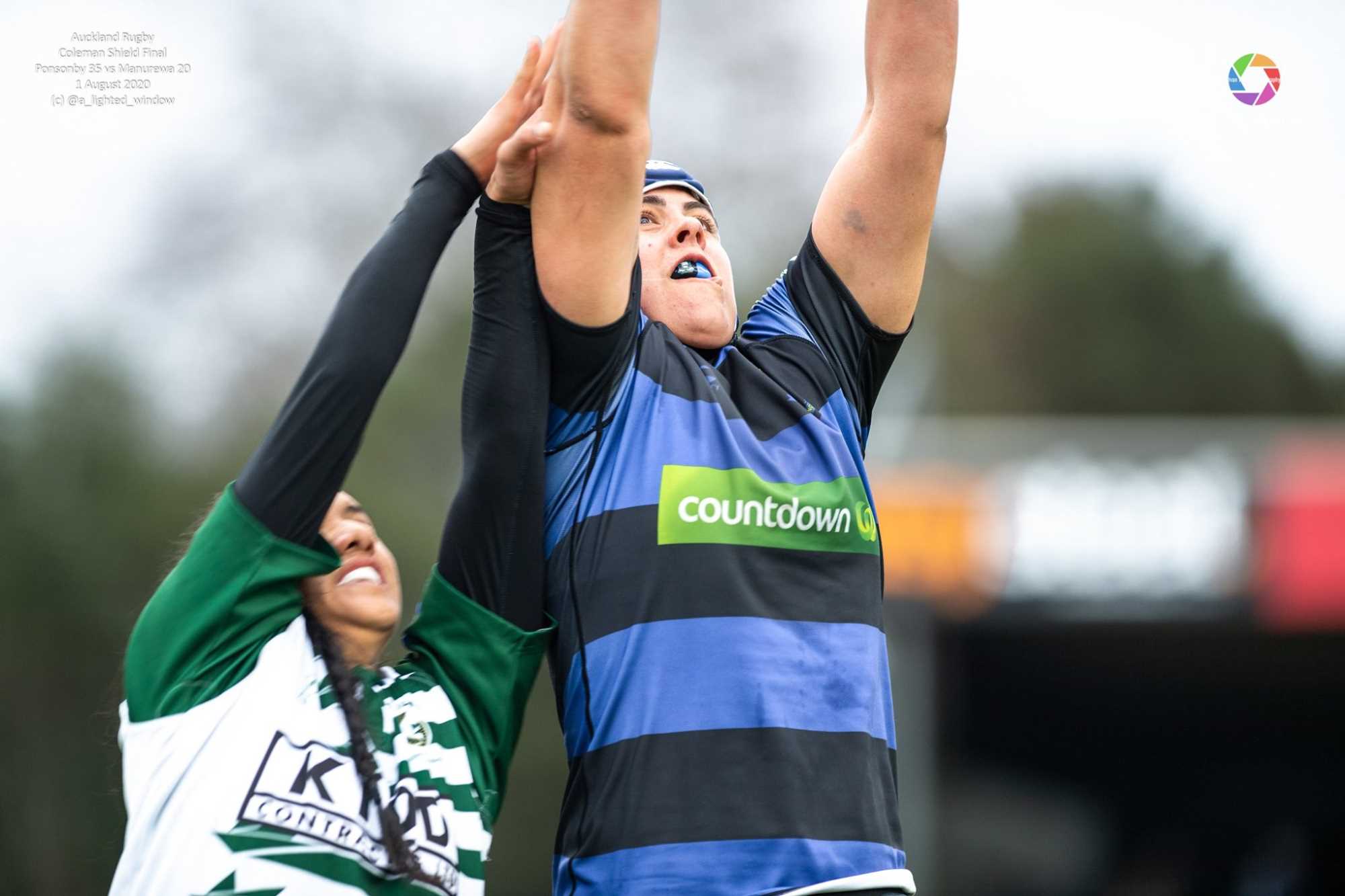
Eloise Blackwell - Black Ferns Captain
Eloise Blackwell - Article by Paul Naezor
The naming of the Black Ferns saw four Ponsonby players selected for the November series – one of them, Cristo Tofa, for the first time as a Ponsonby player – but the biggest honour of all went to Eloise Blackwell, who was named as the team captain, succeeding Leslie Elder in the position.
Blackwell has been in outstanding form for the last few seasons, and anyone who saw her in action over the Coleman Shield programme knew she would be one of the first chosen if a national team was selected this year. Returning to Ponsonby after a couple of seasons with Eden, she was a key player in a team which claimed the Shield for the first time (it was awarded in 1998) and won the championship for the first time since 1993.
While Blackwell wasn’t captain of Ponsonby this year – her New Zealand team mate, Cristo Tofa, had that role – she was a dominant figure throughout the season and widely recognised as such, both by her peers and also those watching from the sidelines. Her set-piece dominance was a huge factor in the early stages of the Coleman Shield final, allowing Ponsonby to settle into their work after a skittery start. While not named Player of the Match, she must have been right there in the final reckoning.
The rapid growth of the women’s game over the past decade means the position of Black Ferns captain is becoming more high profile with each passing year. It is, like its counterpart role in the All Blacks, filled only after careful consideration of a number of qualities the successful candidate must have. Playing skill is only one, although obviously the captain should be an automatic selection. The captain is now the regularly-seen face of the team, its often-heard voice and a person who is seen to be the leader at all times. Not coincidentally, she is also the player more youngsters look up to than almost any other.
Ponsonby Rugby Club is very proud that Eloise Blackwell was chosen to fill this position in 2020, and offers her its sincere congratulations and best wishes, and extends the same to the other three club members – Aldora Itunu, Charmaine McMenamin and Cristo Tofa – who also earned Black Ferns selection this year.
One thing that may have passed most by is that it has actually been a very long time since Ponsonby had one of its members appointed captain of the national team – 107 years, in fact. Despite having produced 48 All Blacks and 22 Black Ferns, there have only been three club members given that role.
The first, and by far the most famous, is Dave Gallaher, our first All Black. He led the 1905-06 Originals, the team that changed the face of the game for ever, on their devastating run through Britain. Gallaher’s story has been told many times in many different forums, and the Shield that bears his name is a sought-after prize that has sat in its special cabinet on the clubroom wall no fewer than 35 times.
The second was Joe O’Leary, a very fine fullback in the years immediately before World War I. He was named New Zealand captain for the home series against Australia in 1913, when the top All Black team was on its way to North America for a 16-match tour. O’Leary would have been in that party had he been available, but his experience was invaluable in a young and fairly raw All Black side. He was the last fullback to captain New Zealand in a test until Mils Muliaina led the team three times in 2009.
The third is Eloise Blackwell.
Three other Ponsonby players have captained the All Blacks in tour matches at scattered intervals. The first was Lew Hook, who did the honours in one match in Australia during the 1929 tour; the second was Andy Haden, who led All Black teams in non-test matches on eight occasions, and Joe Stanley, who did the honours in Argentina in his final All Black appearance, against Mar Del Plata in 1991. Blackwell is the first Ponsonby player to lead the Black Ferns in any match.
(Photo by A Lighted Window)
Article added: Friday 13 November 2020
